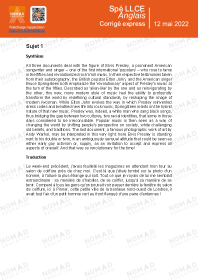Margaret Atwood was born in Ottawa, Ontario (Canada) in 1939. She studied at the University of Toronto and then went on to do graduate studies at Radcliffe College in Massachusetts. After that, she taught at a variety of colleges and universities both in Canada and the US.
Atwood has written novels, screenplays, poems and books for children. Her first published work was a collection of poetry "Double Persephone" (1961). Her first novel The Edible Woman came out in 1969. After that, she never stopped writing Surfacing was published in 1973, Lady Oracle in 1976, Life Before Man in 1980, The Handmaid's Tale in 1986. She won the Booker Prize for Fiction in 2000 for The Blind Assassin.
Some of her books have been adapted into films. A television series based on her novel Alias Grace (published in 1996) was broadcast in 2017.
The Handmaid's Tale is probably her best known work. Since it was published, it has been translated in over 40 languages and adapted for the screen and the stage. It was first adapted for the cinema by the writer Harold Pinter. The film directed by Volker Schloendorf was released in 1990. This novel was also adapted as an opera by Poul Ruders in April 2003.
More recently it became a very popular television series, starring Elisabeth Moss in the lead role. The New York Times described the series as "spectacular" and according to The Guardian : " Margaret Atwood’s dystopian novel gets the chilling and brilliant TV adaptation it deserves, including a standout performance from Elisabeth Moss". Margaret Atwood herself wrote that "The television series has respected one of the axioms of the novel : no event is allowed into it that does not have a precedent in human history."
The sequel to The Handmaid's Tale, The Testaments was published in 2019. Just before this novel came out, Atwood addressed her readers and said : “Everything you’ve ever asked me about Gilead and its inner workings is the inspiration for this book. Well, almost everything! The other inspiration is the world we’ve been living in.” The Testaments won The 2019 Booker Prize and Irish writer, Anne Enright, in The Guardian describes Margaret Atwood's writing as "adroit, direct, and beautifully turned."
VOCABULARY
graduate studies : études de 2ème cycle universitaire
The Booker Prize : prix littéraire britannique
to broadcast : diffuser
screen : écran
stage : scène
to be released : sortir (dans les salles de cinéma)
chilling : glaçant
to deserve : mériter
standout : remarquable
inner workings : fonctionnement intérieur















